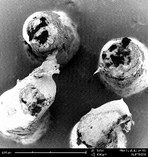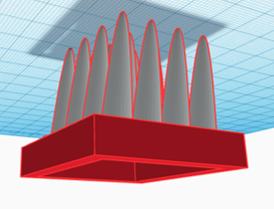Future and Emerging Technologies - Fish-Al
Introduction
The project entitled ‘Developing an Artificial Intestine for the sustainable farming of healthy fish’ involves 6 partners with UNIVERSITA DEGLI STUDI DI MILANO being the coordinator. The project duration is 48 months and started April, 1st 2019.
Project Description
A healthy, balanced diet has a fundamental role in preventing a large range of chronic diseases and contributes to prolong life quality with obvious benefits for the individual as well as for the society. Aquaculture production plays a substantial role in this perspective because fish is an important source of well-balanced proteins and important nutrients such as marine-derived omega-3 fatty acids. However, its sustainability generates concerns as farmed fish diet is largely based on fishmeal and fish oil. Consumer and environmental groups demand a continued move towards alternative feeds. Objective of this project is to develop a next generation 3D culture platform that accurately mimics the complex functions of the intestinal mucosa. Its purpose is to make available a technology for predicting the health and nutritional value of innovative components of aquafeeds. Current methods are lengthy, expensive and requires the use of large number of animals. Furthermore, they do not provide the knowledge of the cellular and molecular mechanisms determining the final effect of each meal on the fish. This lack of mechanistic knowledge severely limits our capacity to understand and predict the biological value of the single raw material and of their different combinations. We propose to develop new ad hoc biomaterials to create a 3D scaffold where to grow and differentiate a complete population of intestinal epithelial cells. Combining state of the art notions on fish nutrition will lead to a fully functional prototype of artificial intestine (Fish-AI) that will enable the feed industry to predict accurately and efficiently the health and nutritional value of alternative feed sources substantially improving European aquaculture sustainability and competitiveness. The project fosters cross-fertilisation and synergy among nutrition physiology, bioengineering, cell and stem cell biology to develop innovative technologies for a sustainable livestock production.
Objectives
These are the objectives of Fish-Al:
• The development of a functional fish artificial intestine (Fish-AI) able to mimic the complex functions of the intestinal mucosa. The prototype will combine a purposely-developed 3-D scaffold, with the growth and differentiation of a functional intestinal epithelium.
• The assessment and development of the Fish-AI prototype capability to predict the nutritional and health value of feeds and bioactive components.
• The validation of Fish-AI through the analysis of previously untested fish feeds.
Role of Ghent University
UGent/PBM will develop crosslinkable hydrogels to function as cell support. The hydrogels will be characterized for their physico-chemical properties including crosslinking degree and kinetics. The polymers will be processed into pillar-like scaffolds by using moulding as well as 3D printing techniques. The scaffolds developed will be characterized for their morphology, stiffness as well as their capability to support the targeted cell response.
Website
under construction, available very soon
Contact
Prof. Sandra Van Vlierberghe
Polymer Chemistry & Biomaterials Group
Centre of Macromolecular Chemistry
Department of Organic and Macromolecular Chemistry
Phone number: +32(0)9/264.45.08
E-mail

